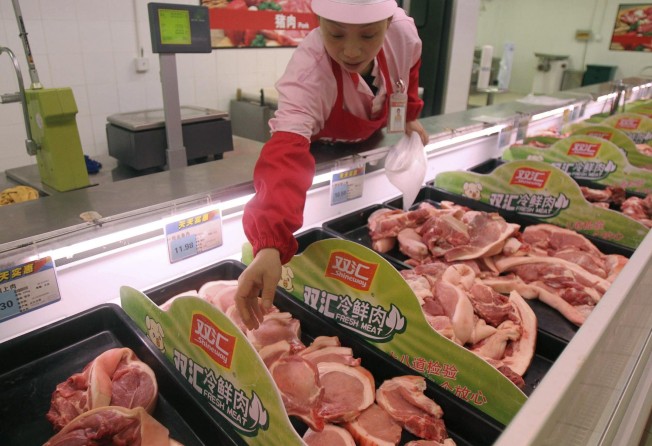Chinese pork giant WH Group pulls Hong Kong IPO citing weak demand
While confusing syndicate and high valuations lead to the failure of the pork producer's deal, Bank of Beijing seeks to tap HK market for US$4b

The world's largest pork producer WH Group has postponed its US$1.9 billion share sale, effectively axing what was once billed as the biggest initial public offering in Asia so far this year.
The decision came after a move last week to slash the price and the offer size of the deal from an original US$5 billion, which failed to tempt potential investors, who were already signalling their unwillingness to swallow such a large transaction.
"In light of deteriorating market conditions and recent excessive volatility, the company, having consulted the joint sponsors, has decided that the global offering will not proceed at this time," WH said yesterday.
As many as 29 investment banks were working on the deal, which critics said created confusing messages about details of the offer.
WH, formerly Shuanghui International, originally planned to use the proceeds from the offer to pay down the US$4 billion syndicated loan it borrowed to acquire Smithfield Foods, the largest pork producer in the United States, for US$4.7 billion last year.
Apart from an unusually large and confusing syndicate, the deal failed partly due to its demanding valuations, which sparked a major pullback by a handful of big sovereign wealth funds.
"WH's [offer] failed to meet investors' expectations on earnings growth after the firm paid a lofty 30 per cent premium on the acquisition of Smithfield," said a fund manager with a European firm in Hong Kong.
The manager had withdrawn his order due to questions over WH's earnings going forward.
"The overall sentiment remains cautious even though valuation in the city's stock market looks inexpensive," the manager added in a reflection of mounting concerns over growth prospects in the mainland economy.
A flurry of other deals are working their way around the Hong Kong market, including a US$4 billion share sale by Bank of Beijing, the mainland's biggest city lender.
It is among a clutch of mainland banks lining up to sell equity to meet increasingly stringent capital requirements set by the country's regulators. Analysts reckon as much as US$50 billion in securities from mainland banks will be marketed to investors over the summer.
Bank of Beijing, in which Dutch financial group ING holds a 14 per cent stake, said it planned to sell as many as 3.4 billion H shares at a time when sentiment over the mainland's banking stocks remains lukewarm amid concerns over deteriorating asset quality and rising non-performing loans in a slowing economy.
Board chairman Qiang Xin was quoted by mainland media as saying the flotation could boost the lender's capital adequacy ratio by 3 percentage points and fulfil its capital requirement for the next five years.
The final decision was pending approval by shareholders and regulators, the bank said.
It raised 15 billion yuan (HK$18.9 billion) through a Shanghai float in September 2007 and then a further 11.8 billion yuan from a private placement in the city in 2012.